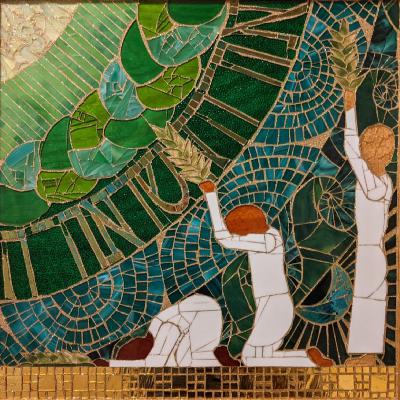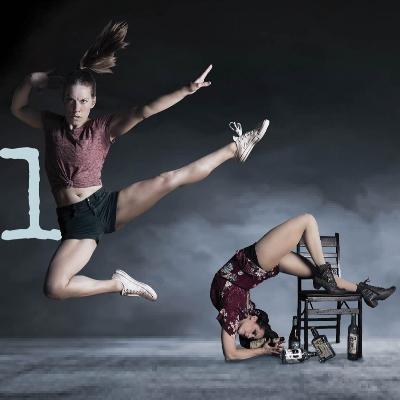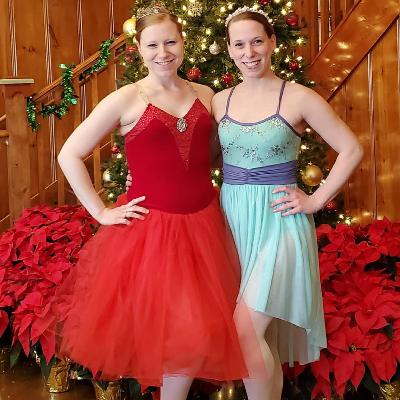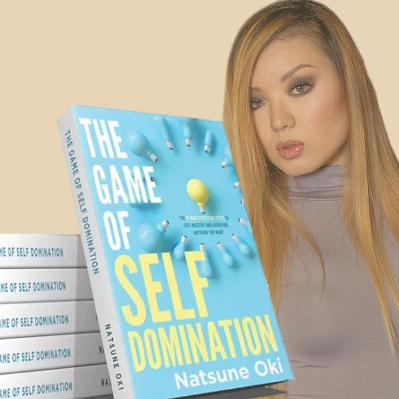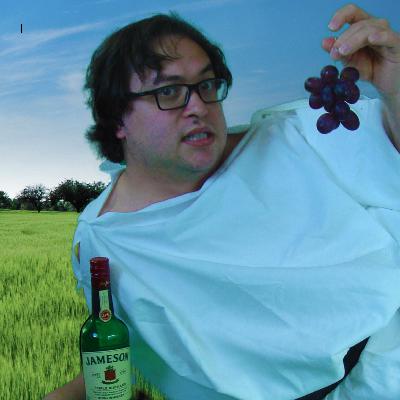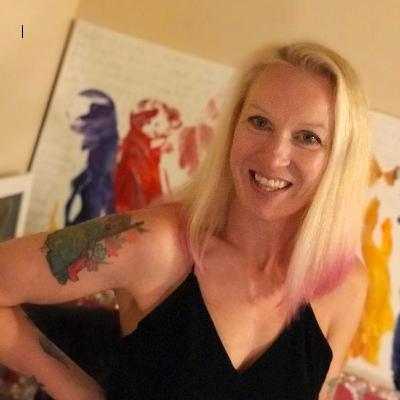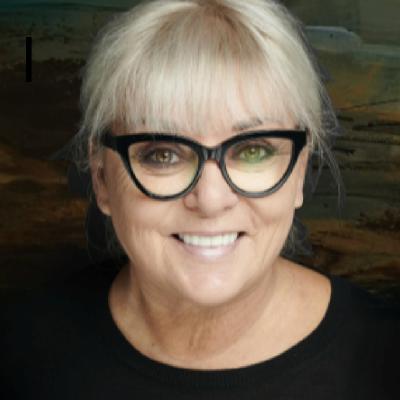Episode 074 - ”What is Art to You?” - Part 1
Description
In today's unique episode, I have compiled some of our earliest guests' answers to the question, "What is art to you?" This delightful compilation brings a plethora of unique, honest, and inspiring answers to that question, and I'm excited to share part one of this limited series with you today. Enjoy!
Enroll in Lindsey's dance and wellness courses: www.elevateart.thinkific.com
Support Artfully Told: www.paypal.me/elevateart
Artfully Told links: www.facebook.com/artfullytold | www.artfullytold.podbean.com | elevateartskc@gmail.com
Get a free audiobook through Audible! http://www.audibletrial.com/ArtfullyTold
Schedule your own interview as a featured guest with Artfully Told! https://calendly.com/artfullytold/podcast-interview
Episode 74 - "What is Art to You?" - Part 1
[00:00:00 ] Lindsey Dinneen: Hello and welcome to Artfully Told, where we share true stories about meaningful encounters with art.
[00:00:06 ] Krista: "I think artists help people have different perspectives on every aspect of life."
[00:00:12 ] Roman: "All I can do is put my heart in to the world."
[00:00:15 ] Elizabeth: "It doesn't have to be perfect the first time. It doesn't have to be perfect ever, really. I mean, as long as you, you're enjoying doing it and you're trying your best, that can be good enough."
[00:00:23 ] Elna: "Art is something that you can experience with your senses and that you just experience as so beautiful."
[00:00:31 ] Lindsey Dinneen: Hello, and welcome back to another episode of Artfully Told. I'm your host Lindsey and today I have a very unique episode that I'm really excited to share with you. It is a compilation of all of the different, amazing answers I've received over the last year and some change to the question, "what is art to you?" I love asking this question, because the answers I get are always so diverse and beautiful and unique and challenging. And I just can't wait to share the insights that I've gathered over the year with you. So enjoy and I'll catch you next time.
[00:01:14 ] Ashley Taylor: To me, art is way for us to make sense of the world that we live in at its most basic level. I think we can do that a number of different ways. For one thing, sometimes when I think of art, I think of still life painting or landscape painting. That's like a very basic example of art. Or even going back to like the cave paintings, which is little stick animals, right? That's a way of humans who are saying, " Here's what I see. I'm going to try to copy it or represent it."
[00:01:45 ] And that's a very simple, almost primitive way of trying to make sense of the world of the world that we live in. So we can start there, or we can go all the way to very abstract paintings or dances or music, which sometimes are so abstract that the audience doesn't even understand what the inspiration was, but that is somebody trying to make sense of the world in their own way.
[00:02:08 ] I'm sure even trying to say, I can't make sense of the world--life is meaningless, so I'm going to make this hard to tell what it means art about it, right, that's still representing something. It's our way of trying to grapple with what we're seeing and experiencing.
[00:02:24 ] Bryant Williams: Art to me is inspiration. Art to me is vital. I think that's the best--where art is vital and art is a form of expression meant for the world to share in a mutual experience.
[00:02:39 ] Krista Eyler: I think it's making something from nothing. And no, there's a song called "Finishing the Hat," and it talks about that creation of, you know--I made a hat where there never was a hat, and art to me is really just that. And I'm glad I rhymed those two lines. It's making something from nothing that hopefully will make somebody else feel something very important or have a very visceral, emotional response. I mean, everything I write musically is to reach someone else, is to entertain someone else, is to give, you know, that pleasure in your ears from some really great music and singing.
[00:03:27 ] That's, that's kind of how I see art. You know what? I'm not a scholar of art. I'm not a scholar of dance. I'm not a scholar of music theory. I'm basically not a scholar of anything except the raising my children, but when it comes to art, I just, I just really feel great satisfaction when you make something that wasn't there before and then it's there, then you've brought it into existence and then you wonder why it was not there before.
[00:03:58 ] Rick Wright: I feel like to me, you know, it, it's an outlet and an exploration first and foremost, and I think if we're lucky it becomes an end product, but I don't know that that is necessarily the most important. I think there is, there is value in the exploration that, that just happens with all things creative, whether it's dance or it's paint or it's clay. It's about communicating, it's, it's communicating with different materials or in different ways than the verbal or auditory that we're used to. I, I think it's, you know, it's a little bit of your, your soul, you know, uncovering your soul, whether you realize it or not. I think it's about just exposing your, your true self.
[00:04:52 ] Danielle Guy: Art is expression of truth done a visual way. So where it is taking some form of reality and putting it in a way that can be physicalized, whether it be by, you know, painting or drawing or by moving, or by speaking--just a different way to look at it--that is different from what our normal reality is, which can be quite boring.
[00:05:19 ] Roman Mykyta: Art is ultimately a worldview. I think art starts with a worldview. It's very intentional and it's very presentational and it's always a form of communication with the creator and the viewer. But where my head is now as well, I kind of feel like art is everywhere around us. Even just looking out the window, the art is within the worldview to be able to see anything and to give it meaning, and it can be good or bad meaning, but I personally always like the good meaning, and to just kind of commune with all of these things in our life, which are indicative of something.
[00:06:02 ] Erin Paige: Art to me is an expression of the soul. And I think that that just comes in many forms, whether it's a street performer that feels the need--even a little kid that is dancing to some music, I consider that art. So really anything that you're inspired to do that your soul is telling you to do? That's how I see art.
[00:06:33 ] Elizabeth Cooper: I would say I would define art as a piece of work that someone is inspired by, like someone sees something around them and they're inspired by it and so they want to then recreate it in a way that means something to them. I feel like art is, you know, it's a very personal thing, you know, everybody sees it differently. And so yeah, I guess I would, I would just define art as anything that, that is inspired by the things around you, that then you create something from that inspiration.
[00:07:12 ] Jeremiah Kauffman: I guess art is any creative process to produce something that's meaningful to the artist and they want it to show up other people. And I don't really, I don't think there are any boundaries to what art is. There are no limitations. And if you produce a sculpture or a performance, choreographic performance, apart, whatever or painting. And someone says, ah, that's not art. If you say it's art, because the creative expression of what you're trying to share with others and it is art. So, I'm not one that looks at a particular, you know, like painting, you know, all right.
[00:07:50 ] So somebody paints hyper-realistic babies or, or kittens. And someone says, yeah, that's art because that's hyper-realistic. But the, the abstract painting that somebody did --that's not art. That is not true. The abstract painting is just as much art is the cute little kittens. It's just the art is the expression of creativity. That's all it is. I don't think we should pigeonhole art. Art's anything that illustrates emotion from both the artist and the viewer. It's something that entertains and teaches, and something that can be used to make our lives better. It can be something that improves our society or just makes us happy or just helps us feel better about ourselves or helps us. It gives us comfort when we need comfort or gives us inspiration when we need to be inspired, and if it affects and produces all range of emotions. And I think that if there's an emotional response, then that's also art.
[00:09:02 ] Katheryn Krouse: So I think I would define art as a thoughtful form of expression. I think it doesn't have to necessarily be creating a painting or writing a song or a poem. I think it can also include how you dress or how, how you cook, how someone cooks can be a form of art. I think that it can be anything or any way that one chooses to carry themselves--how, you know, how they decorate or different, different things. I think all of these are good forms of art.
[00:09:40 ] Heidi Loubser: I think if I'm trying to one sentence to it, I mean, art is the act of creating . You know, we take one resource and we transform it into another. We take a body and we mold it to do certain things on stage. We take clay and we turn it into a sculpture. So maybe, yeah, the act of creating, if I had to boil it down to a phrase.
[00:09:58 ] David Weinraub: I define art as anyt




